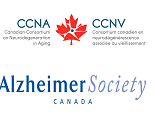Event Date: Oct 29, 2015
Related Resources l
Recording
Cognitive screens for Indigenous seniors must address the cultural bias of existing assessment protocols, and be developed in consultation with front-line health care workers and health managers who work with Indigenous seniors, including partners from Northern and remote settings. Clinical researchers and graduate students at the University of Saskatchewan’s Rural and Remote Memory Clinic developed the Northern Cultural Assessment of Memory (N-CAM; Crossley et al., 2011; 2012) in partnership with Keewatin Yatthé Regional Health Authority (KYRHA) Home Care Service staff and managers, in consultation with Indigenous seniors and health care staff from the Saskatoon Community Clinic, and with support from the Indigenous Peoples Health Research Centre (IPHRC) and Northern Medical Services. Intended as a dementia screening protocol for Indigenous seniors, the N-CAM does not assume or require formal education or fluency in English. The protocol incorporates colourful and familiar materials, includes a story-telling component, and can be administered in the preferred language of the senior with the assistance of a bilingual family member or other caregiver. The N-CAM was designed primarily for home-based assessment by front-line health workers and includes family caregivers in the assessment of activities of daily living and changes in functional status.
Presentation Goals:
- To review the development of the N-CAM, including a summary of results from a Saskatoon inner city Indigenous community and clinical use with non English speaking patients at the Rural and Remote Memory Clinic, with reference to diagnostic criteria and behavioral indicators for cognitive impairment and dementia.
- To review the administration, scoring, and interpretation of the Caregiver Interview and Cognitive Screen components of the Northern-Cultural Assessment of Memory (N-CAM). Administration materials and scoring/interpretation guidelines can be made available to those interested in using the N-CAM in their communities.
- To include attendees in a discussion of the strengths and limitations of the N-CAM for culturally fair assessment of age-related cognitive functioning and the early detection of dementia.
This integrated KTE webinar event is brought to you by brainXchange in partnership with the Alzheimer Society of Canada and the Canadian Consortium of Neurodegeneration in Aging (CCNA).

Presenter(s):
Dr. Margaret Crossley (PhD, R.D.Psych):
Margaret Crossley, Professor Emerita (University of Saskatchewan), is a member of the interdisciplinary Rural Dementia Action Research (RaDAR) team and the Canadian Consortium on Neurodegeneration in Aging (Team 20: Issues in Dementia Care in Rural and Indigenous Populations). Prior to her retirement from the UofS in 2012, Margaret taught in the areas of clinical and experimental neuropsychology, psychogerontology, and psychopathology and served as the Department of Psychology’s Director of Clinical Psychology Training (2006-2012). She directed the Aging Research and Memory Clinic (1994-2004) and the neuropsychology team at the Rural and Remote Memory Clinic (2004-2012), a one-stop, telehealth-facilitated interprofessional assessment and consultation service initially developed through a CIHR Institute of Aging New Emerging Team (NET) grant and since supported by Saskatchewan Ministry of Health. Margaret researched cognitive indicators of normal aging and early stage dementia, and developed and evaluated interventions designed to improve quality of life for rural and remote residents with dementia and their family caregivers, including cognitive assessment protocols for Indigenous seniors.
Debra Morgan (PhD, RN):
Debra Morgan is a Professor at the Canadian Centre for Health & Safety in
Agriculture, Chair in Rural Health Delivery, and Director of the Rural and Remote Memory Clinic, University of Saskatchewan. She leads the interdisciplinary Rural Dementia Action Research (RaDAR) team, which focuses improving rural and remote health service delivery for individuals with dementia and their caregivers. Since 1999 her research program has been funded by CIHR and partners, including the Saskatchewan Health Research Foundation. To guide this program, in 2008 Dr. Morgan established a decision-maker advisory council and the Knowledge Network in Rural and Remote Dementia Care, which meet at an annual knowledge exchange Summit. She is currently leading the rural stream of Team 20: Issues in Dementia Care in Rural and Indigenous Populations, within the Canadian Consortium in Neurodegeneration in Aging (CCNA).